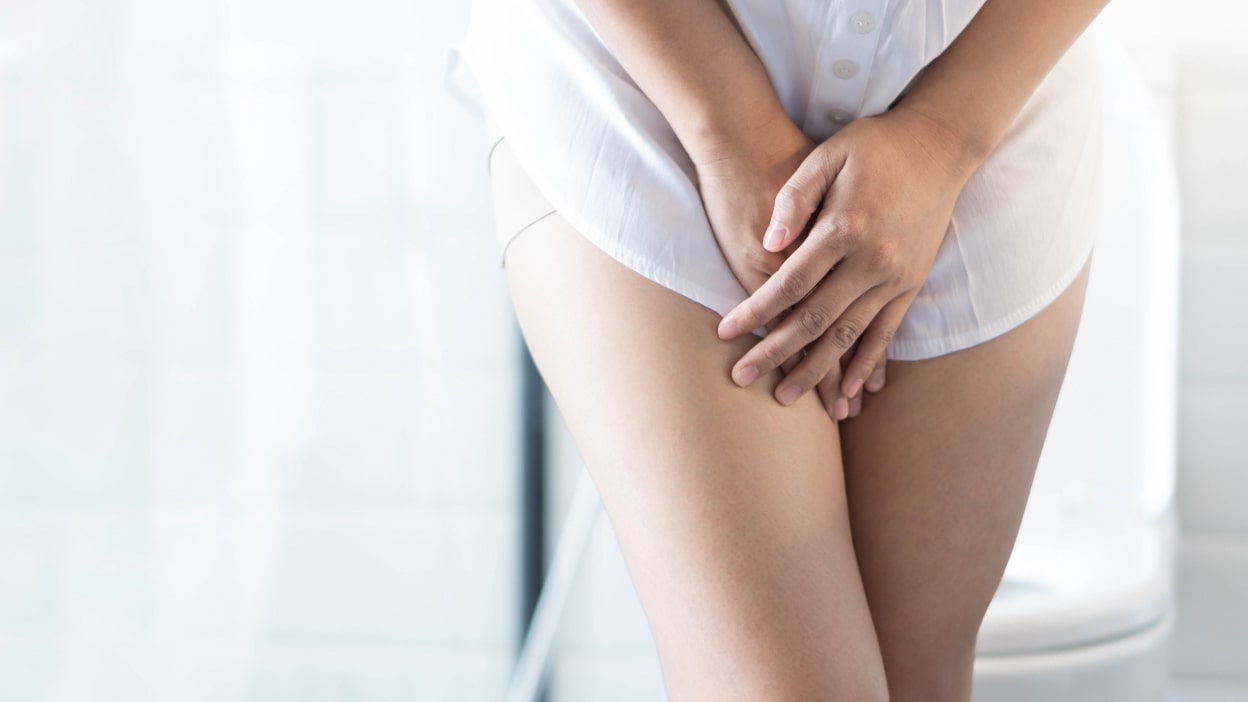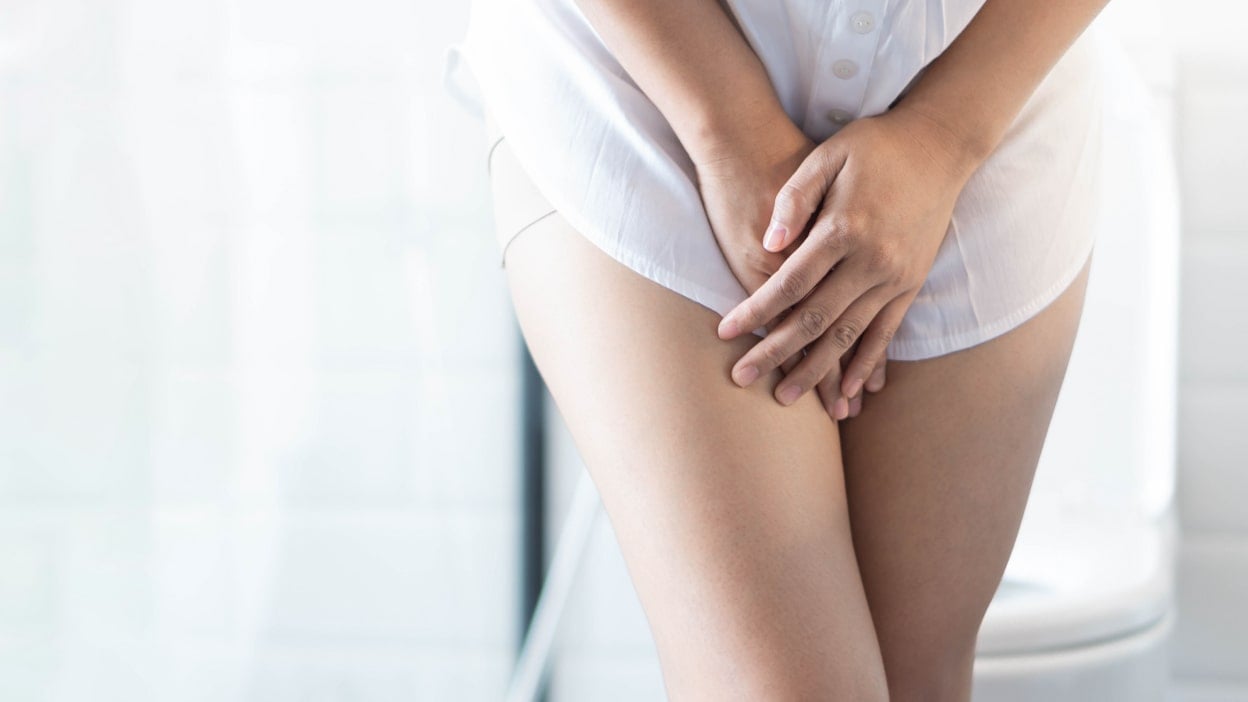Light Bladder Leakage / Urinary Incontinence FAQs
Light Bladder Leakage / Urinary Incontinence FAQs
Anyone can experience incontinence & LBL and it's more common than you think, with 1 in 3 women experiencing light bladder leakage. Poise is here to help and provide you with answers to some frequently asked questions so you could better understand your bladder leaks and how to treat them.
What Is Light Bladder Leakage (LBL)?
LBL stands for Light Bladder Leakage , and it affects about 40 million women. One in three experiences it, and there are things you can do so that those little leaks don't stop you from living your life. A first good step is a visit to a qualified medical professional.
At What Age Does Light Bladder Leakage (LBL) Start?
Since every woman's body is different and there is a wide variety of contributing factors that lead to Light Bladder Leakage (Light Bladder Leakage) / urinary incontinence, women can experience it at any age in life. Some women experience it when a chronic cough puts strain on the pelvic floor and weakens it. Others may experience it during or after pregnancy, or menopause. Some are triggered by bladder aggravating foods or medications. An important first step is to see a qualified medical professional to determine the cause and best treatments specific to your body.
Can Teenagers Experience Incontinence and Light Bladder Leakage?
It is possible for a teenager to have Light Bladder Leakage / urinary incontinence, and I strongly encourage you to talk with a parent and see a health care provider as your first step, especially given your young age. Every woman is different and it's important to seek the advice of a medical professional. Lots of women have Light Bladder Leakage and it's great to see that you've started the conversation.
Why Does My LBL Get Worse When I Have an Alcoholic Beverage?
Wine, and other drinks that contain alcohol or caffeine, can make Light Bladder Leakage symptoms worse in some women. Certain foods and drinks may irritate the bladder and trigger light bladder leakage / urinary incontinence.
How Can I Help Prevent Leaks Caused by Pressure on My Bladder?
There are many options to help with Light Bladder Leakage / urinary incontinence. We encourage you to talk about those options with a qualified health care provider. To help you have a productive conversation, we have a couple helpful articles: The Light Bladder Leakage Treatment Spectrum and, Talking to a Pelvic Floor Therapist.
What Can I Do to Help Control Odor From Light Bladder Leaks / Urinary Incontinence?
Eliminating odor is something many women are concerned about when selecting an incontinence pad. Poise® uses absorb-loc® core which absorbs Odor and locks away wetness. Sometimes, going up to the next level of absorbency pad will help or possibly changing the pads more frequently.
Will Lower Body Mass Index and Weight Help Bladder Control and Light Bladder Leakage?
Yes, even a few pounds can make a big difference. Extra weight increases intra-abdominal pressure, and a 5% - 10% weight loss can significantly help reduce it.
Hard Coughing From Bronchitis Is Causing Bladder Leaks. What Can I Do?
Over time, chronic coughing can put a big strain on your pelvic floor muscles. As the muscles weaken, bladder leakage can increase. Luckily, there are things you can do, such as work with your physician to get your coughing under control. Also, you may find it helpful to do exercises such as Kegels, yoga, or any type of exercise designed to strengthen the pelvic floor muscles. We have an article titled, "How to Kegel" that you may find useful.
How Can I Stop Bladder Leakage When I Cough or Sneeze?
Coughing puts pressure on the bladder, and over time it can weaken your pelvic floor muscles, causing leakage. If your cough is chronic, it's helpful to seek treatment for it. You may also benefit from doing Kegel exercises to help tone your pelvic floor muscles. However since every woman's body is different, it's important to talk with a medical professional for advice specific to your body's needs.
How Do You Deal With Getting Intimate With a New Partner When You Have LBL?
Be kind to yourself. It isn't always easy to have a serious talk about sex and Light Bladder Leakage / urinary incontinence with a partner. Remember that you aren't alone. Other women experience this and the more comfortable and accepting you are with yourself, the easier it will be for both of you to enjoy an intimate relationship.
How Long Does It Take To Stop Leakage When Doing Kegel Exercises?
Every woman's body is different, so there is no specific time table for this. When women have experienced Light Bladder Leakage / urinary incontinence for a long time, it may take longer to strengthen the pelvic floor muscles than someone who has just started leaking. For some women, Kegels alone may stop the leakage. For others, there may be a reduction in leakage or there may be other possible concerns that need to be addressed by a medical professional.
I’m up at Night to Urinate More Than During the Day. Can Medications Help?
Is There Any Type of Surgery or Medicine That Can Help With Light Bladder Leakage (LBL) / Urinary Incontinence?
At What Point Do I See a Doctor About Light Bladder Leakage (LBL)?
Recommended Products
Absorbency Level
Absorbency Level










